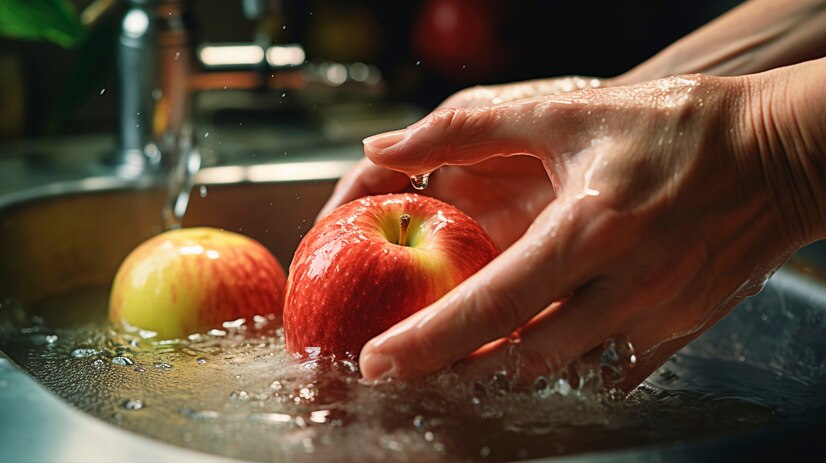Imagine you’re running a buzzing restaurant in the heart of the city. It’s a packed Friday night, and your kitchen’s firing on all cylinders. Then, a customer flags a foodborne illness on social media, and suddenly, your phone’s blowing up with complaints. Health inspectors show up, and you’re hit with a violation notice. Your heart races—could you have prevented this? For hotels, restaurants, and catering services, food safety mishaps are more than a bad night; they’re a threat to your reputation. So, here’s the real question: Are you ready to serve up trust and keep your customers coming back?
HACCP certification is your answer. It’s not just a fancy acronym; it’s a proven system to ensure your food’s safe from kitchen to plate, protecting your guests and your business. For hospitality businesses, HACCP (Hazard Analysis and Critical Control Points) certification is the gold standard for food safety. Let’s unpack what it is, why it’s a must, and how to get it—with a conversational vibe, practical tips, and a nod to what’s cooking in the hospitality world in June 2025.
What’s HACCP Certification, Anyway?
If HACCP sounds like techy jargon, let’s keep it simple. HACCP stands for Hazard Analysis and Critical Control Points, a system that identifies and controls food safety risks, like contamination or improper storage. Think of it as a kitchen safety blueprint, guiding your team to serve food that’s safe every time.
Certification proves your business follows HACCP principles, verified by experts like BSI, NSF, or SGS. It involves analyzing your processes—say, how you store raw chicken or cook pasta—and setting controls to prevent hazards. For hotels, restaurants, and caterers, it’s a badge of trust that tells guests your food’s not just delicious but safe.
Why Hotels and Restaurants Need HACCP Certification
Let’s be real: the hospitality game is high-stakes. From five-star hotels to cozy cafes, customers expect perfection—and food safety’s non-negotiable. A single slip, like a salmonella outbreak or a hygiene violation, can cost thousands in fines, scare off diners, and tank your reputation faster than a bad Yelp review.
Here’s the deal. Health violations, like those from FSSAI or local regulators, can shut you down temporarily—or worse. Customer complaints? They spread like wildfire on Instagram or Zomato, turning away bookings. And lawsuits? Foodborne illnesses can lead to legal battles that drain your budget. HACCP certification stops these risks in their tracks, ensuring your kitchen’s a fortress of safety.
Now, let’s get personal. Your business is more than a menu—it’s your passion, your staff’s hustle, your guests’ joy. A food safety fail doesn’t just hit your profits; it hurts your pride. HACCP certification protects that pride, letting you serve with confidence and keep your dining room packed.
And here’s a quick digression: June 2025 is a big moment for hospitality. With diners craving sustainability—think farm-to-table menus—and transparency about food safety, HACCP aligns with these trends. It’s not just about compliance; it’s about meeting guest expectations in a post-pandemic, health-conscious world.
Key Principles of HACCP
HACCP isn’t a random checklist—it’s built on seven principles, like a chef’s recipe for safety. Here’s what you need to know:
- Conduct a Hazard Analysis: Identify risks, like bacteria in raw meat or allergens in sauces.
- Determine Critical Control Points (CCPs): Pinpoint steps where risks can be controlled, like cooking or chilling.
- Establish Critical Limits: Set safe thresholds, like cooking chicken to 165°F.
- Monitor CCPs: Check controls regularly, like tracking fridge temps.
- Take Corrective Actions: Fix issues fast, like tossing spoiled ingredients.
- Verify the System: Audit your plan to ensure it works, using logs or tests.
- Keep Records: Document everything, from temps to cleaning schedules.
Certification bodies like NSF or SGS guide you through these principles, tailoring them to your kitchen or catering setup. They’re like your sous-chef, helping you craft a foolproof safety plan.
How to Get HACCP Certified
So, how do you get HACCP certified? It’s like prepping a perfect dish—plan, execute, and refine. Here’s the process:
- Step 1: Training. Send your team—chefs, managers, or quality leads—to HACCP training from providers like BSI or AIB International. Online or in-person, it’s a crash course in food safety.
- Step 2: Develop a HACCP Plan. Map your processes, identify hazards, and set controls. Tools like NSF’s templates make this easier.
- Step 3: Implement Controls. Train staff, monitor CCPs, and keep records. Think daily temp checks or cleaning logs.
- Step 4: Audit. Certification bodies like SGS or Intertek inspect your kitchen or catering site to verify compliance.
- Step 5: Certification. Pass, and you get your HACCP certificate. Annual audits keep you sharp.
The process takes 3–12 months, depending on your setup. Global bodies like BSI have local teams, making it smooth for hotels or caterers in busy markets.
Benefits That Boost Your Business
Why bother with HACCP certification? Because it’s a powerhouse for your hospitality business. First, it ensures compliance. HACCP meets FSSAI, FDA, or EU food safety rules, dodging fines that can hit lakhs. A hotel chain I heard about avoided a shutdown after a surprise inspection, thanks to its HACCP plan.
Second, it builds customer loyalty. Guests trust certified businesses—think families dining at your restaurant or corporates booking your catering. Third, it drives efficiency. Streamlined processes, like better inventory management, cut waste and save cash. And credibility? HACCP certification attracts big clients, from wedding planners to hotel chains.
Emotionally, there’s pride in knowing your kitchen’s a beacon of safety. Your team feels it when guests rave; your brand shines. It’s not just about surviving in hospitality—it’s about leading with trust.
Challenges (It’s Not a Piece of Cake)
Let’s keep it 100: HACCP certification isn’t a walk in the park. Costs can pinch—training and audits might run $1,000–$10,000 (Rs. 80,000–8 lakh), depending on your scale. Time’s a hurdle; developing a plan takes months, tough for busy restaurants or hotels. And complexity? HACCP’s principles can feel like mastering a new cuisine for small teams.
Here’s a mild contradiction: while certification’s tough, it’s doable with the right support. To manage costs, start with online training from AIB or NSF. For time, assign a dedicated lead—maybe your F&B manager—to drive the process. And for complexity, lean on bodies like SGS; they simplify the jargon with practical guidance.
Choosing the Right HACCP Certification Partner
Picking the right HACCP certification partner is like choosing a trusted supplier—you need reliability and expertise. Here’s how to nail it:
- Accreditation Cred: Ensure they’re recognized by GFSI or national bodies. BSI, NSF, and SGS are top-tier.
- Hospitality Expertise: Choose providers with food service experience, like Intertek for hotels or AIB for catering.
- Local Support: Look for global firms with local teams, like NSF’s offices in major cities, for easy audits.
- Clear Costs: Get upfront quotes. A $3,000 package might include training and audits, while cheaper ones could skimp.
- References: Check reviews on LinkedIn or Google. A provider with happy clients—like a caterer praising BSI—is a safe bet.
For June 2025, Q3 is a smart time to start—perfect for prepping for festive season rushes or regulatory audits. Most providers offer free consults to scope your needs. Pro tip: Ask for case studies of hotels or restaurants to see their track record.
Wrapping It Up: Serve Safety, Win Trust
HACCP certification isn’t just a requirement—it’s your edge in the hospitality world. From ensuring compliance to winning guest trust, it equips your hotel, restaurant, or catering service to shine. With partners like BSI, NSF, or SGS, you’ll navigate certification with confidence, turning risks into strengths.
So, what’s holding you back? In a market where food safety’s king, HACCP certification is your shot to stand out. It’s about pride, trust, and serving up excellence. Ready to make your kitchen a food safety star?






